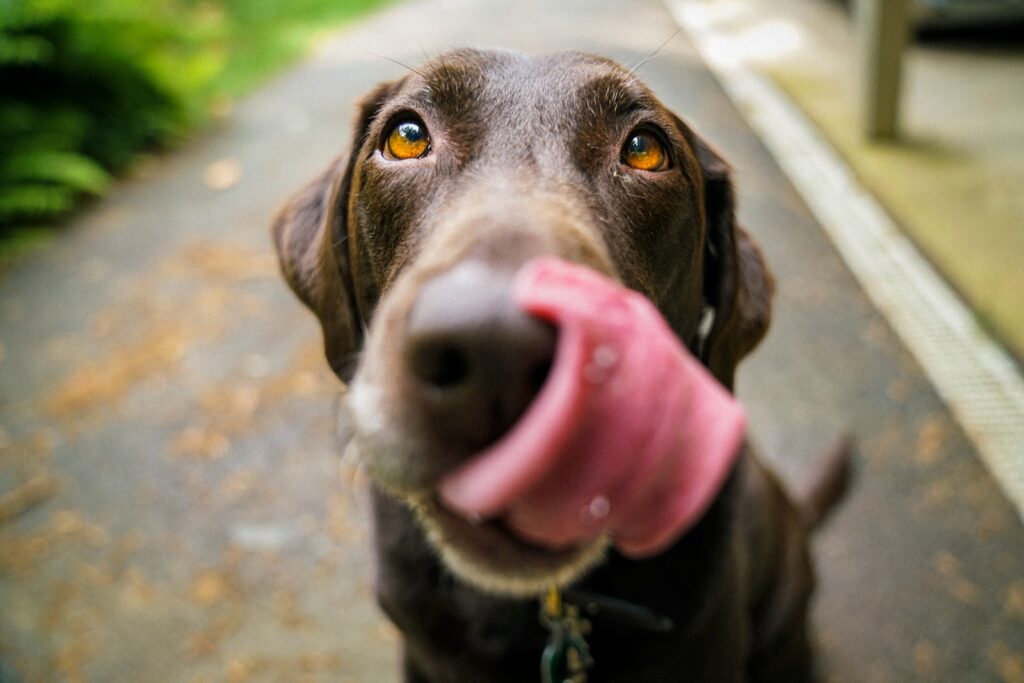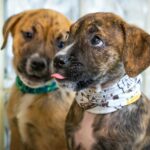Can Dogs Eat Ants? — Yes, They Can
Dogs can indeed consume ants. However, it is important to note that not all ants are safe for dogs. While some ants are harmless, others may pose potential risks to your furry friend. It is crucial to understand the different types of ants and their effects on dogs before allowing them to indulge in these tiny creatures.
Can Puppies Eat Ants?
Yes, puppies can consume ants, but it is advisable to exercise caution in doing so. Puppies have sensitive digestive systems, and consuming ants, especially in large quantities, may lead to stomach upset or other discomfort. It is recommended to consult your veterinarian before introducing ants to your puppy’s diet.
Things to consider when feeding ants to puppies?
When feeding ants to puppies, you must consider the possible risks associated with it. Puppies’ immune systems are still developing, and their bodies may not tolerate certain substances found in ants. It is essential to monitor your puppy for any adverse reactions and modify their diet accordingly.
Nutritional Benefits of Ants for Dogs — Why Ants are Good for Dogs? /Why Dogs can have Ants
Ants are a rich source of protein
Protein is an essential nutrient for dogs as it helps in maintaining and repairing their body tissues. Ants are packed with protein, making them a nutritious addition to a dog’s diet. Protein also plays a crucial role in supporting your dog’s immune system and promoting proper growth and development.
Ants contain vitamins and minerals
In addition to protein, ants are also a good source of vitamins and minerals. These tiny insects provide important nutrients such as vitamin C, vitamin B, iron, and calcium. Vitamin C aids in collagen production, while vitamin B supports overall brain function. Iron contributes to healthy blood circulation, and calcium is essential for strong bones and teeth.
Ants offer natural antioxidants
Ants possess natural antioxidants that help in combating harmful free radicals in a dog’s body. Antioxidants play a crucial role in maintaining overall health and reducing the risk of chronic diseases. Including ants in your dog’s diet can provide these beneficial antioxidants.
Potential Allergies: Can Dogs Be Allergic to Ants?
While allergies to ants in dogs are relatively rare, some dogs may exhibit allergic reactions. If your dog consumes ants for the first time, monitor them closely for any signs of an allergic reaction. Symptoms may include itching, redness, swelling, or gastrointestinal issues. If such symptoms occur, consult your veterinarian immediately.
Symptoms of Ant Allergies in Dogs
- Itching and scratching with intensity
- Rashes or redness on the skin
- Sneezing or nasal discharge
What to Do If Your Dog Shows Symptoms?
- If your dog exhibits any of the above symptoms after consuming ants, contact your veterinarian for further guidance.
- Refrain from providing ants to your dog in the future.
- Monitor your dog’s condition and provide appropriate medical treatment as advised by your vet.
Recommended Amount: How Much Ants Can a Dog Consume?
The recommended amount of ants for a dog’s consumption depends on the size, age, and overall health of the dog. It is crucial to introduce ants gradually into your dog’s diet and observe their digestive response. Start with a small amount and monitor for any adverse reactions. Consult your veterinarian to determine the appropriate quantity of ants for your specific dog.
Things to Consider When Feeding Ants to Dogs
When feeding ants to dogs, there are a few considerations to keep in mind:
- Ensure the ants are free from any pesticides or harmful substances.
- Avoid feeding ants that may have come into contact with toxic materials or other insects that could harm your dog.
- Do not rely solely on ants as a primary source of nutrition for your dog.
- Monitor your dog’s response and discontinue feeding ants if any adverse reactions occur.
How to Feed Ants to Dogs: A Quick Guide
Feeding ants to dogs can be a delightful and beneficial experience. However, it is essential to follow these steps to ensure a safe and enjoyable feeding process:
Peanut Butter and Ant Treats
Create a delicious and nutritious treat by mixing crushed ants with peanut butter. Spread the mixture onto a dog-friendly biscuit or serve it as a stuffing for a Kong toy. This recipe provides a delightful combination of taste and beneficial nutrients for your furry friend.
Frozen Ant Yogurt
Blend ants into plain yogurt and freeze the mixture in ice cube trays. Serve these frozen ant yogurt cubes as a refreshing summer treat for your dog. Not only will they enjoy licking the frozen cubes, but they will also benefit from the added vitamins and minerals present in the ants.
Ant-Inclusive Meatballs
Add crushed ants to your homemade meatball recipe. By incorporating ants into the meatballs, you offer your dog a savory and nutrient-rich meal. Ensure the meatballs are cooked thoroughly before serving them to your dog.
Conclusion
In conclusion, dogs can safely consume ants as long as precautions are taken. Providing ants in moderation can offer a range of nutritional benefits such as protein, vitamins, minerals, and natural antioxidants. However, it is crucial to monitor your dog for any potential allergies or adverse reactions. Always consult your veterinarian before introducing new food items to your dog’s diet. With careful consideration and attention, ants can be a healthy and enjoyable addition to your dog’s culinary options.






